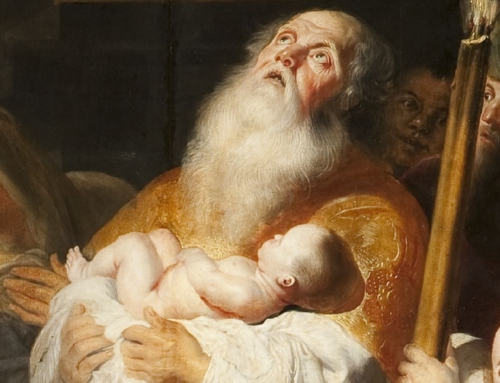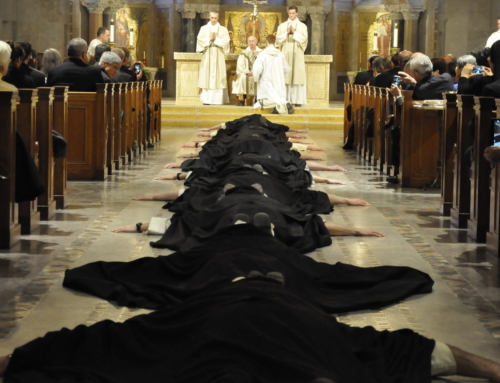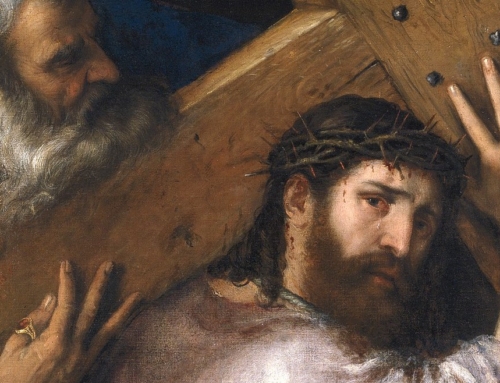Consider Jesus hanging on the cross. Observe the cuts on his body from being scourged and violently stripped of his clothes. See the gashes made from falling under the weight of his heavy cross. Notice the torn flesh of his pierced hands and feet. Look him in the eyes as blood drips down his face. Why did the God-man endure this? For what—for whom—was all this blood shed?
A ninth-century Church council answered this question with a formulation that leaves no room for misinterpretation: “There is not, never has been, and never will be a single human being for whom Christ did not suffer” (Council of Quierzy; cf. CCC 605).
Every person you have ever sat by on an airplane, every server that has ever waited on your table, every customer service representative you have ever spoken with on the phone: Christ suffered for them—all of them. Consequently, behind every set of anonymous headlights you see as you drive down the interstate sits an immortal soul who is either a member or a potential member of the Body of Christ.
Besides these strangers, Christ also poured out his blood for everyone you love. Your sons and daughters, your parents and grandchildren, whether they are faithful or have gone astray, all of them were on Jesus’ mind as he was whipped and mocked. Your enemies, too—the people whose very presence makes your blood boil—Jesus died for their salvation. He bore the greatest of all torments so that their offenses, even the sins they commit against you, might be forgiven.
Finally and perhaps hardest for us to believe, Jesus endured his gruesome passion for that petty, selfish, irresolute person you see looking back from the other side of the mirror. Jesus died for you. He did this, not only to deliver you from sin, but also to demonstrate how much he loves you, to show you your worth, and to give you an example of patience and humility.
At times, sin seems to have the upper hand, and we might be tempted to doubt whether salvation is really possible for us and those around us. In such moments, we must turn our gaze back to a bloody crucifix and recall that Jesus—the Word made flesh—died for our sake. As Réginald Garrigou-Lagrange put it, “The love of Christ, dying on the cross for us, pleased God more than all sins taken together displeased him, so the Savior is more powerful to save us than the enemy of good is to destroy us” (Three Ages of the Interior Life, Ch. 21).
Saint Faustina, writing about Jesus’ blood, said, “One drop alone would have been enough for the salvation of all sinners” (Diary of St. Faustina, 72). Aquinas likewise tells us that “Christ’s Passion was not only a sufficient but a superabundant satisfaction for the sins of the human race” (ST III, q. 48, a. 2). Sin is terrible—no doubt—but against the blood of Jesus, it stands no more chance than a lit match before an ocean.
To acknowledge the immense power of the cross and that Jesus “is expiation for our sins, and not for our sins only but for those of the whole world” (1 John 2:2) is not an excuse to neglect our souls or to shirk our duty to evangelize. We still work out our salvation “with fear and trembling” (Phil 2:12). Nevertheless, we go forward knowing that Jesus is on our side and on the side of everyone we will ever know or meet. His generosity is superabundant, and “he is always able to save those who approach God through him” (Heb 7:25).
Let us fix our eyes on Christ’s blood and understand how precious it is to his Father, for, poured out for our salvation, it has brought to the whole world the grace of repentance.
—Saint Clement of Rome (CCC 1432)
✠
Image: Hendrick ter Brugghen, The Crucifixion with the Virgin and Saint John







